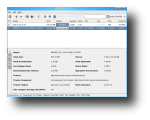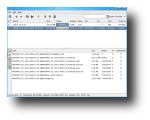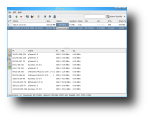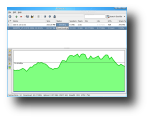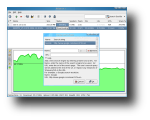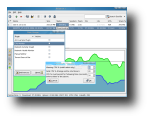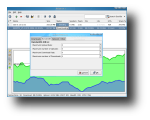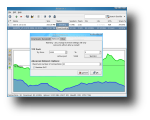Nowadays, most of the people that spend time on-line have at least heard of the Bittorrent protocol and have a pretty clear idea about how to use it. For the rest of the people that haven't heard of it, here's a short description: Bittorrent is a protocol for distributing files over TCP/IP networks. Simply put, it's a rather new and innovative Peer to Peer file sharing method. It has gained so much popularity and appreciation from users because of the download speeds, which are huge compared to a normal HTTP download. The reason for such high speeds is the way Bittorrent was built: as soon as you download a part of a file, Bittorrent uploads it to other users (peers), so the file is spread at high speeds. The more people downloading the file and the more available the source to download from, the faster it goes.
The main aim of Bittorrent is to reduce the load on the server distributing the file; this is achieved by allowing the clients downloading the file to also distribute the data they have already received with each other. There is a central server (called a tracker) which coordinates the action of all such peers. The tracker only manages connections, it does not have any knowledge of the contents of the files being distributed, and therefore a large number of users can be supported with relatively limited tracker bandwidth.
To be able to download files through the Bittorrent protocol, you'll need a Bittorrent client. Because this protocol is so popular, there's a large number of clients available for all platforms. Modern clients come in different sizes and shapes and the differences between them are quite notable so you'll need to choose a client that best fits your needs.
Deluge is a new Bittorrent client written in Python and GTK+. It runs best on Linux GTK desktop environments such as Gnome or XFCE but will also run flawlessly on KDE and others. This was one of the reasons for the client's name change from gTorrent, which implied that it's a Gnome-only client. Besides these two dependencies, Deluge also requires litorrent and python-libtorrent.
To install Deluge, either download the source code package, uncompress it, compile and install it, or use your distribution package manager to download it and its eventual requirements (which are selected automatically by the package manager). There have been packages built for modern distributions, such as Debian/Ubuntu, Fedora and Gentoo.
Deluge is a simple Bittorrent client, with just a few basic but useful features. Its interface follows the common look of many Bittorrent clients: the main window is split it two sections; in the upper section, you'll see a list with currently downloading torrents, while the lower section consists of various details regarding the selected torrent. The torrents list is divided into columns which show the name of the torrent, its size and status, the number of available peers and seeders, the download and upload port, the ETA and share percent. You can also access a context menu if you right click on a torrent, which allows you to forte pause, resume, remote torrent and update tracker. The lower section is also divided into categories, accessible through tabs. The first tab shows detailed info about the torrent, such as total size, total downloaded, tracker address and its response, total uploaded, share ratio and few others. The next tab shows the files being downloaded by the selected torrent. It has a context menu accessible by right click on certain file, which allows you to set which files to download and which not. Next is the peers tab, which will list the peer's ip address, client, percent completed, his download and upload speed. No context menu here. And finally, the last tab will show any eventual warnings received over a download session.
Additional functions can be added to Deluge through its plugin system. By default, there are a few plugins available: CPU monitor, network activity graph and network health monitor, popup notifier and torrent search bar. The last mentioned plugin doesn't have any search engines added, so you'll have to manually do it yourself.
Deluge can be configured through the Preferences dialog window, which can be found under the Edit menu. This dialog is divided into four tabs: the Downloads tab, which enables you to choose a default download directory or whether to ask you for a download location each time a torrent is loaded. In the Bandwidth tab you can set the maximum upload and download rate, as well as the maximum number of downloads and uploads. The network tab allows you to choose a port range used for incoming connections and maximum number of allowed connections. Finally, Other, the last tab, only has two options at the moment: either to automatically stop seeding when a ration reaches a value you chose and whether to use compact storage allocation.
The Good
Deluge is a small Bittorrent client with a self-explanatory interface. It supports multiple downloads and a few other features that offer a pleasant download session.
The Bad
Unfortunately, it doesn't support creating torrents and several other Bittorrent functions are missing. However, Deluge is actively being developed so you'll newer know what will be added in the near future.
The Truth
Deluge is suitable for inexperienced users that download files through Bittorrent very rarely. It only offers a few functions, which makes it easier to use for beginners. However, if you need more power and advanced functions, go for another client.
Check out some screenshots below:
 14 DAY TRIAL //
14 DAY TRIAL // 